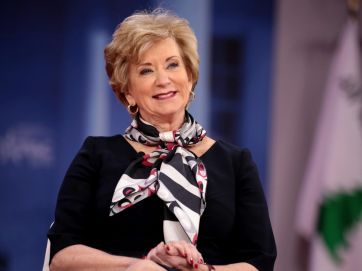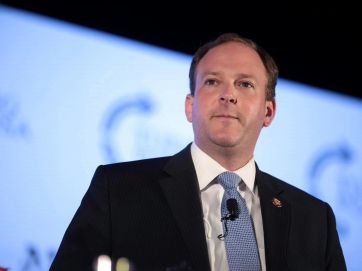It was the one of the best institutional statements on academic freedom in the United States, according to David Horowitz. And now it’s about to be ruined.
Pennsylvania State University’s Policy HR64: Academic Freedom was first published in 1950 and revised in 1987. The Faculty Senate recently decided that the policy needed a facelift to make the statement more “current.” For example, in 1987, “the classroom” did not include online education, nor was shared governance seen as falling under academic freedom. So last week, the Senate approved major changes that will go into effect upon approval by the president.
These changes include the deletion of key passages that described the responsibility of the professor not to introduce unrelated controversial material into the classroom. The section, “In Instructional Roles” (formerly “In the Classroom”) has been changed as follows:
It is not the function of a faculty member in a democracy to indoctrinate his/her students with ready-made conclusions on controversial subjects. The Faculty members are is expected to educate train students to think for themselves, and to facilitate provide them access to those relevant materials which they need to form their own opinions if they are to think intelligently. Hence, in giving instruction upon controversial matters the fFaculty members are is expected to present information fairly, be of a fair and judicial mind, and to set forth justly, without supersession or innuendo, the divergent opinions of other investigators that arise out of scholarly methodology and professionalism.
No faculty member may claim as a right the privilege of discussing in the classroom controversial topics outside his/her own field of study. The faculty member is normally bound not to take advantage of his/her position by introducing into the classroom provocative discussions of irrelevant subjects not within the field of his/her study.
Inside Higher Ed describes the revision decision largely in a positive light and cites the Faculty Senate chair, Jean Landa Pytel, saying that no specific incident prompted the alterations. But David Horowitz’s praise for the old policy could have been a factor. Horowitz, a longtime champion of academic freedom for both faculty members and students, held up HR64 as evidence that some universities value true academic freedom, at least in theory. He cited it in his book The Professors: The 101 Most Dangerous Academics in America and in testimony to the Pennsylvania legislature in 2005.
In contrast, Cary Nelson, president of the American Association of University Professors (AAUP), criticized Penn State’s policy as “especially bad” in his book No University is an Island: Saving Academic Freedom. He told Inside Higher Ed via email, “Penn State had one of the most restrictive and troubling policies limiting intellectual freedom in the classroom that I know of. It undermined the normal human capacity to make comparisons and contrasts between different fields and between different cultures and historical periods. The revised policy is a vast improvement.”
There’s some real irony here. Cary Nelson, head of the AAUP, is denouncing a policy much of whose language had come straight from the AAUP’s founding document: its 1915 Declaration of Principles on Academic Freedom and Academic Tenure. Indeed, the wording “in a democracy,” “indoctrinate,” “ready-made conclusions” “be of a fair and judicial mind,” “without supersession [AAUP: suppression] or innuendo, the divergent opinions of other investigators” are all found in the 1915 Declaration.
We can only conclude that the AAUP has repudiated its original document on academic freedom and is opting for more “living,” evolving definitions. The Association has in fact issued a number of subsequent statements on academic freedom, moving away from the original principles, in 1940, 1994, and 1997—all of which Penn State did draw upon in producing the revised version of HR 64. Absent from the list of documents consulted is the 1915 Declaration.
The NAS stands by the AAUP’s 1915 Declaration of Principles. It lays out both the freedoms and the responsibilities of academic freedom, which is both a right and a responsibility, not a license for political posturing in class. And it has limits:
The claim to freedom of teaching is made in the interest of the integrity and of the progress of scientific inquiry; it is, therefore, only those who carry on their work in the temper of the scientific inquirer who may justly assert this claim.
Academic freedom according to the 1915 Declaration requires professors to act as much like scientists as possible in their teaching and research, even if they are in the humanities. That is, faculty members should use rigorous intellectual methods and arrive at their conclusions through logic and evidence. They are responsible for, in the first place, possessing a deep grasp of their subjects, and in the second, following a science-like pursuit of objective understanding. Only then can they be said to be experts qualified to teach others. And only then will laymen, whether trustees, legislators, or taxpayers, have a justifiable reason for according them the intellectual latitude academic freedom involves.
The AAUP’s endorsement of Penn State’s revised policy shows that the Association no longer understands its primary ideal. Academic freedom is conferred on faculty members conditionally, because they have earned greater knowledge—through self-discipline and scientist-like conduct—than that of the general public. Absent that condition, a professor’s words express nothing more than ordinary opinion and do not carry the special weight of hard-earned expertise. And if all opinions, expert and inexpert, are equal, academic freedom might as well extend to anyone on a soapbox, which the professor metaphorically mounts when he sounds off in class on all and sundry. Why should families pay for their children to hear a stranger’s untested opinions? And why, if ordinary opinion is to command the classroom, should it not be that of the trustees or taxpayers instead of their professorial employees?
This sloppy thinking trickles down to the students, who by the new policy will be taught to “form their own opinions,” and no longer to “think intelligently.” Thinking intelligently implies solutions to be found through penetrating study. Forming your own opinions can be done as easily in a muddle.
Cary Nelson, his groupie John K. Wilson (author of collegefreedom.blogspot.com), and the faculty of Penn State welcome the policy changes as an expansion of freedom. They do not realize that freedom without responsibility is cheap, and that professors lose respect when they use their positions to advance off-hand views unrelated to the subjects they’ve presumably mastered. Once that respect is lost, academic freedom is likely to follow.
If the dignity of its faculty is to be fully preserved, Penn State should return to a model of academic freedom that recognizes the role of the professor as a rigorous, disciplined and specialized inquirer after truth. The proposed change in HR64 won’t become official until it has been approved by Penn State’s president. For the sake of academic freedom we urge him to say no.
Appendix: The 1987 and 2010 versions of Policy HR64: Academic Freedom, Section “In Instructional Roles”
1987 version:
It is not the function of a faculty member in a democracy to indoctrinate his/her students with ready-made conclusions on controversial subjects. The faculty member is expected to train students to think for themselves, and to provide them access to those materials which they need if they are to think intelligently. Hence, in giving instruction upon controversial matters the faculty member is expected be of a fair and judicial mind, and to set forth justly, without supersession or innuendo, the divergent opinions of other investigators.
No faculty member may claim as a right the privilege of discussing in the classroom controversial topics outside his/her own field of study. The faculty member is normally bound not to take advantage of his/her position by introducing into the classroom provocative discussions of irrelevant subjects not within the field of his/her study.
2010 version:
Faculty members are expected to educate students to think for themselves, and to facilitate access to relevant materials which they need to form their own opinions. Faculty members are expected to present information fairly, and to set forth justly divergent opinions that arise out of scholarly methodology and professionalism.













